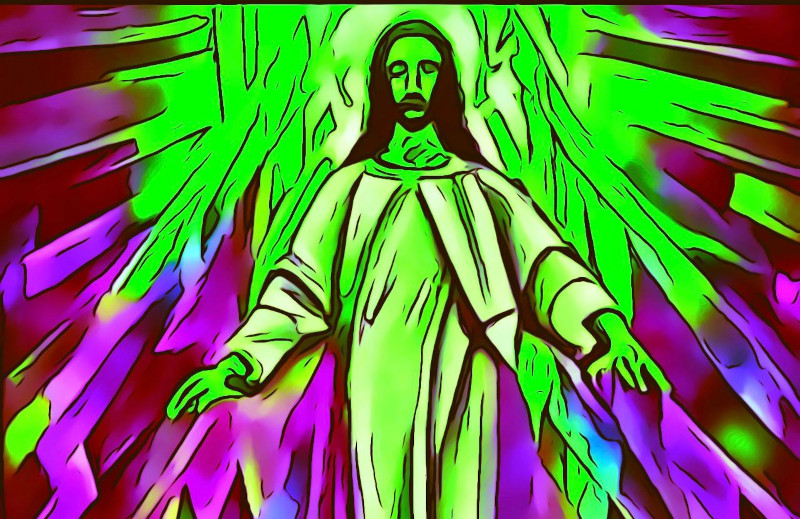
Mercy and… PEACE
This concludes the column to explore some world issues in light of the Jubilee, declining the word “mercy”
At the top of the stairs of the Praetorian Palace, we crossed the threshold of a world apart. Where the Apennines give way to the Valtiberina, in a few rooms of the local Municipal House in Pieve Santo Stefano (Ar), a unique microcosm, the Small Diary Museum, finds its place. A small world (for now), but worth the trip. It is a way for the National Diary Archive, based a few hundred meters away, to speak. In it are collected lives that are seemingly simple and private, as well as those that are complicated and adventurous.
The Archives’ folders house many diaries recounting the difficult days
in the trenches of the Great War, but also amid the upheavals of World War II,
from the partisan struggle to the useless expedition of ARMIR, in Russia.
The abomination of war is impossible to recount. It can only be remedied by lining up the days experienced by individuals. Hatred, barbarism, and contempt have been part of humanity ever since Cain killed his brother Abel, as described in Genesis.
Yet, there was a time when nations believed that the line had been crossed and they needed to get their act together: never again! After the double explosion of atomic devices in Japan in 1945, it was now glaringly obvious that the next step would be the Apocalypse. And it had already come close several times.
The hope, however, was short-lived; time to divide up conquests, influences, and the war turned from hot to cold and froze the next four decades.
Like young deer crossing antlers to challenge each other and decree the strongest in the herd, so narrow conflicts and local feuds were allowed to erupt. Except, now, within months, we Europeans are awakening from hibernation, just as the last generation to see war is thinning out.
Perhaps it is precisely the beginning of our thinking that is wrong.
We believe-at least many of us do-that peace is the absence of war.
There is nothing more erroneous. It is an ancient, Greco-Roman conception.
Just as it would be a pious delusion to think that man can change totally.
“We must not resign ourselves to evil,” writes Aldo Cazzullo in his book ‘The God of Our Fathers,’ ”on the contrary, we must identify it and fight it; but we must also understand that evil is part of history and part of us; and any attempt to transform man into an angel, or to radically change man here and now, is doomed to failure, sometimes in crime and tragedy.
Here the Holy Father comes to our aid and broadens, and by a great deal, the scope of reflection.
“The Jubilee event invites us to undertake several changes,
to address the current condition of injustice and inequality,
reminding us that the goods of the earth are destined not only for a privileged few, but for all.”
So writes Pope Francis in his Message for the LVIII World Day of Peace (January 1, 2025).
In the same Message, the Pope helps us to close the circle opened with Mercy and Debt: “I do not tire of repeating that foreign debt has become an instrument of control, through which some governments and private financial institutions of the richest countries have no qualms about indiscriminately exploiting the human and natural resources of the poorest countries in order to satisfy the needs of their own markets.”
Thus mercy, of God and man, cannot bring effects unless debt forgiveness is applied. Debt, once paid or remitted, must not lengthen punishment; punishment cannot restrict or even eliminate hope; hope cannot pass from man to man without adequate, correct and passionate communication; finally, communication cannot be constructive if it does not lead to the overcoming of injustice and, therefore, if it is not a harbinger of peace, social and in society.
Where the Apennines give way to the Valtiberina, not far from Pieve Santo Stefano, precisely in Sansepolcro, you enter the Museo Civico and an image dazzles you.
Piero della Francesca summarizes an entire encyclopedia in a fresco, just over two meters by two meters in size. It is the Resurrection. Christ has his left foot resting on the edge of the tombstone, in the act of emerging from the tomb. The soldiers, who are supposed to guard his body so that he is not taken away to feign his impossible return to life, are sleeping blissfully and are reduced to an inoffensive slumber.
It is up to us to choose whether to place one foot on the tombstone, once merciful,
and emerge from the grave, or lie in the slumber of the unaware.
“If we allow our hearts to be touched by these necessary changes, the Jubilee Year of Grace can reopen the path of hope for each of us. Hope comes from the experience of God’s mercy, which is always unlimited.” The Pope says so, it is to be trusted.
Francesco Di Sibio
Head of Social Communications Office
Archdiocese of Sant’Angelo dei Lombardi-Conza-Nusco-Bisaccia
Read previous articles that complete the column:
Mercy and… DEBT
Mercy and. PENALTY
Mercy and… HOPE
Mercy and… COMMUNICATION
Source
Image
- Image digitally created by spazio + spadoni
